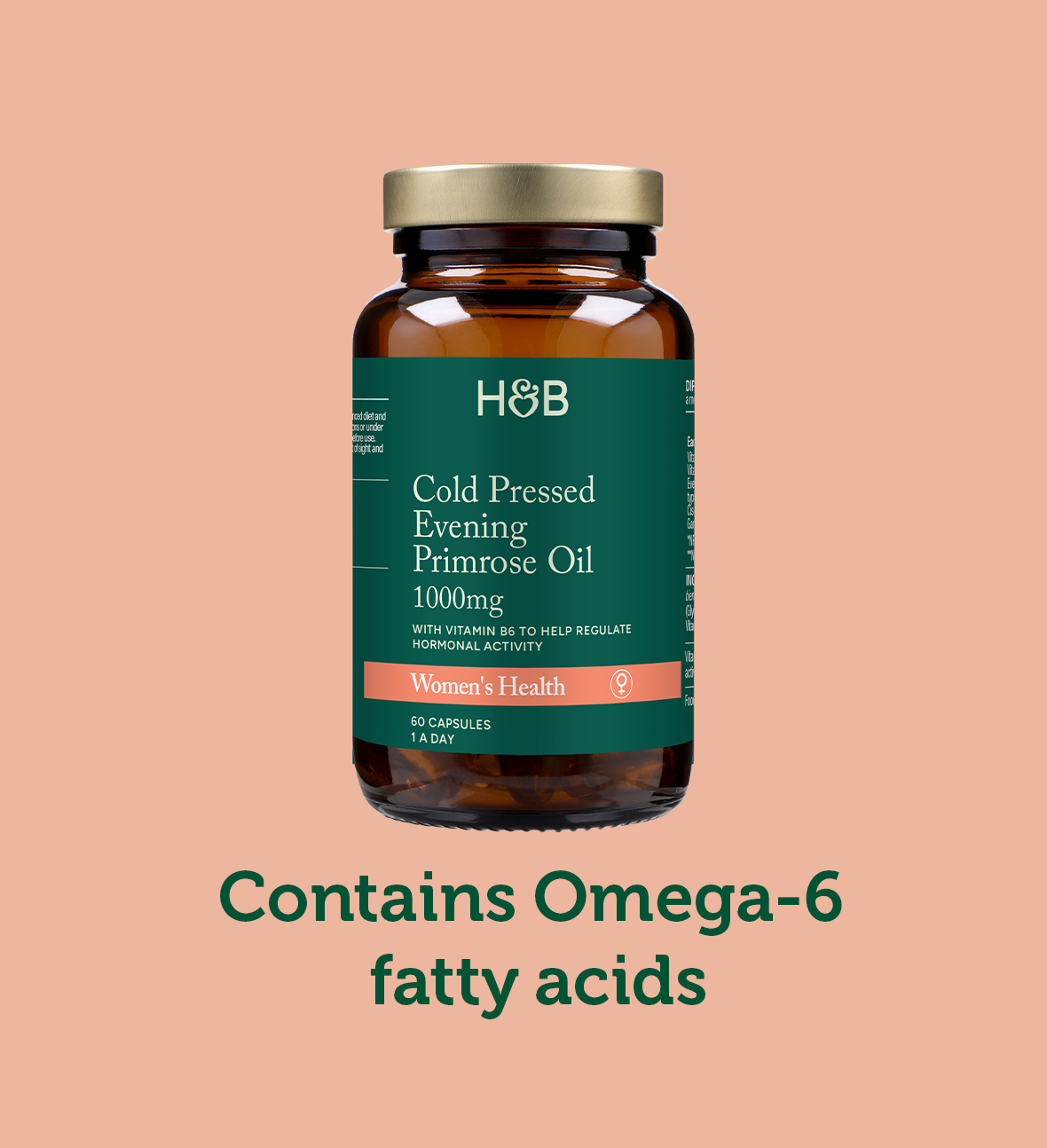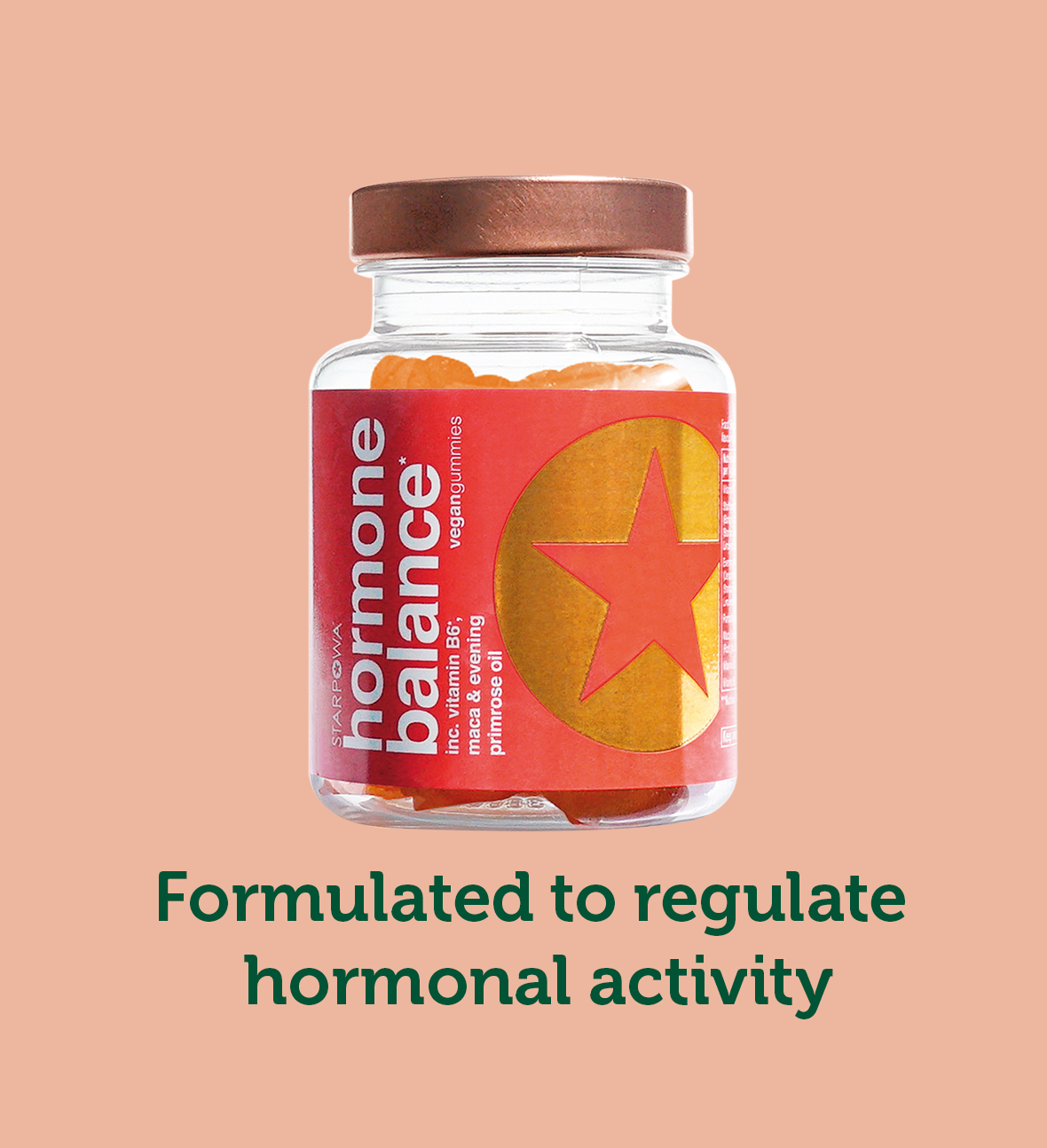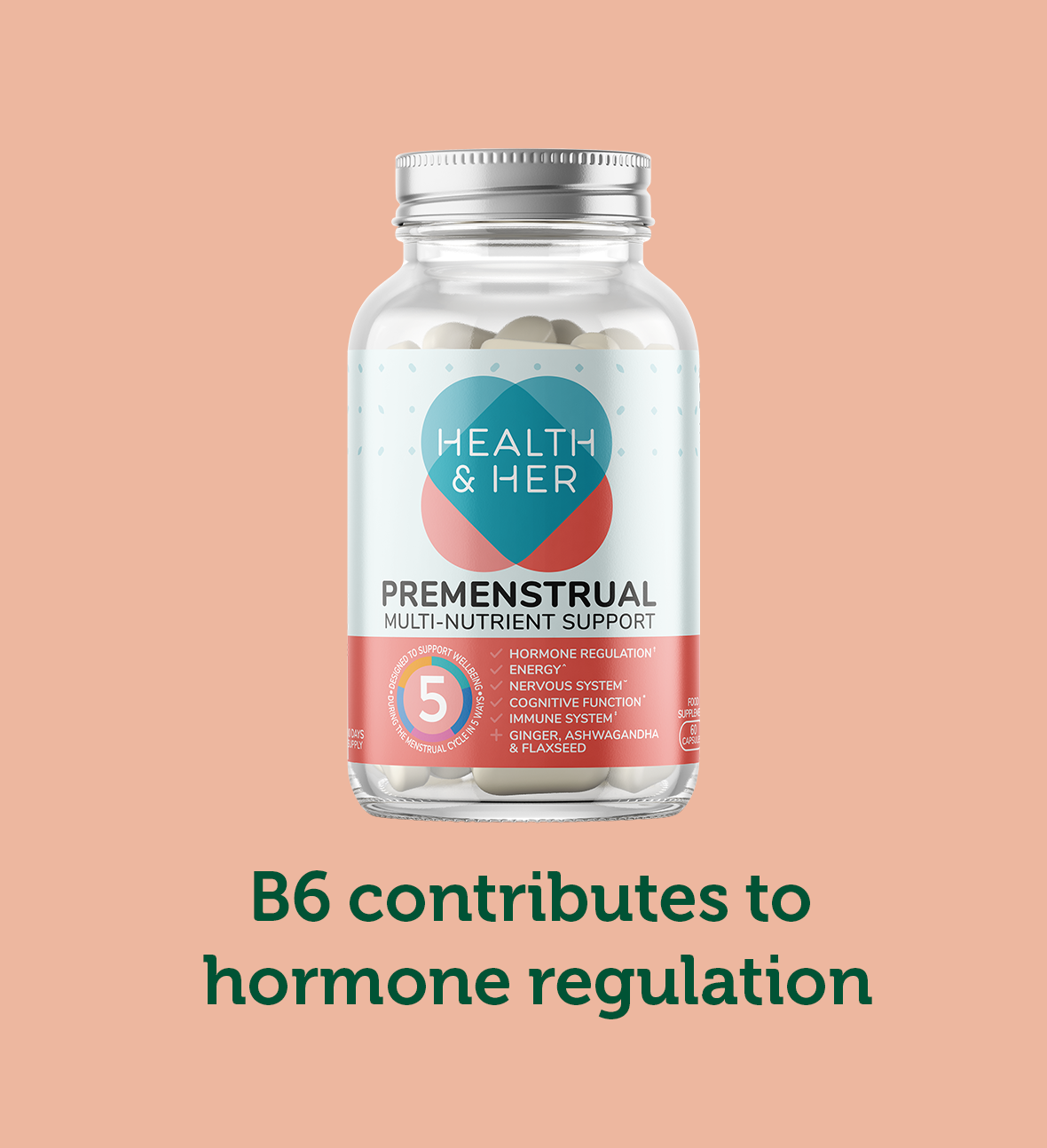15% off £25 or 20% off £35
Period & cycle health
Here for every day of the month

Period & cycle health
Here for every day of the month


Dr Coleen Draper
Clinical dietician and PhD scientist
'Many people experience a higher sex drive during ovulation.'
"If you have irregular periods, fatigue, acne, weight gain, abdominal bloating, mood and behavior changes, changes in gut function, swelling and tenderness of the breasts; you could have a hormonal imbalance.
These are also symptoms of premenstrual syndrome, which occurs in some people as a result of the decline in oestrogen and progesterone during the week before menstruation.
Researchers have suggested a hormone imbalance in estrogen and progesterone might contribute to premenstrual symptoms."
Check out our article on how to balance your hormones in seven natural steps here.
Nutrition – "Emphasize a Mediterranean style diet with a variety of nutrient dense foods, emphasis on high fiber food choices, fruits and vegetables, nuts and seeds, oily fish, lean meats and proper hydration.
Reduce intake of concentrated sugar sources and added sugars, moderate salt intake, as well as alcohol. Women report increased protein and calorie intakes during the luteal phase vs. follicular phases of their cycles.
Early research suggests nutrient needs might be higher during this time but more research is needed. If you find you are hungrier during this time, make sure you increase your intake of healthy, nutrient dense foods and be sure you are eating enough protein at each meal."
Exercise - "Exercising for the recommended amount of time each week (150 minutes of moderate activity) has been shown to enhance physical, mental, and emotional health and if performing regularly, researchers have found that some women actually have fewer painful cramps during menstruation.
Find the exercise that works best for you and stick with it."
More than one in five women experience leaking during exercise. Discover why that could be happening to you here.
Sleep – "Sleep is critical for healthy hormones. Typically, a person will spend 8 out of every 24 hours sleeping. That’s 1/3 of a person’s life.
Following a good sleep hygiene is essential. Know your sleep preferences and abide by them. Go to bed at a consistent time each night. Allow the room to be a bit cooler for a more restful sleep.
Keep the room dark to optimize your natural melatonin production.
Finish your last meal within 2-3 hours before going to sleep so your body is not having to digest its food at the same time it is going to sleep.
Watch your caffeine and alcohol intake, both of which can impact your capacity to get a good night’s rest."
"Many people experience a higher sex drive during ovulation, or at the end of the follicular phase, when estrogen is at its highest. This timing seems to align well with the optimal time to conceive."
Find out more about your cycle, and the changes you may experience in your body here.
"Muscle strength is at its best during the follicular phase of the menstrual cycle, when oestrogen levels peak. This is a great time for resistance training.
However, beware Muscle and tendon injuries occur almost twice as often in the late follicular phase, during ovulation.
Athletic performance may be worse when estrogen and progesterone have declined during the end of the luteal phase and beginning of the follicular phase (during menstruation). Creativity seems to be improved when estrogen and luteinizing hormone are at their highest during the ovulation phase."
We asked Dr Giada Frontino to explain the phases of your menstrual cycle here.
"Cervical mucus and ovulation discharge are the same. Cervical mucus, or ovulation discharge, is secreted by glands around the cervix. Wet and slippery cervical mucus indicates fertility.
You can chart the timing of your change in cervical mucus each month to determine your fertile window."
For more answers to some of the questions you may be having about your menstrual cycle, find our hormones cheat sheet here.



















